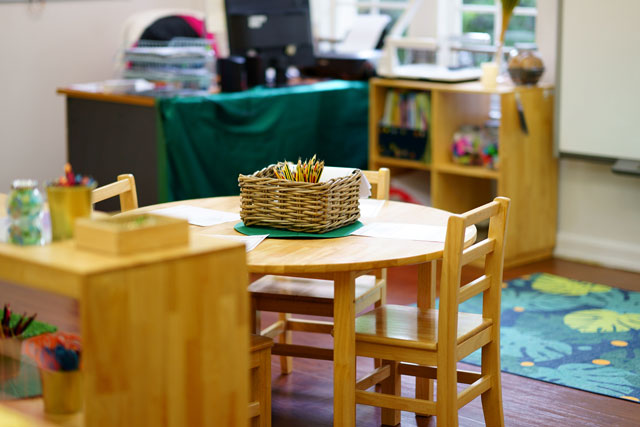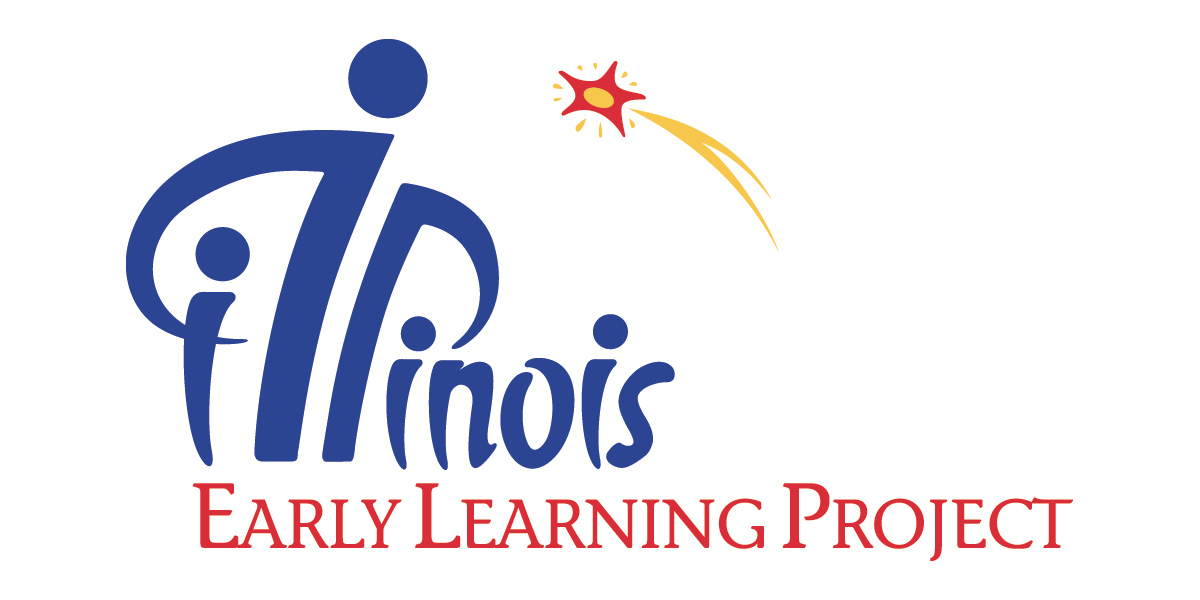
This Q&A explains how quality is measured for early childhood education, what the Quality Rating & Improvement System (QRIS) is, and how program or school accreditation relates to quality.
What is a QRIS (Quality Rating and Improvement System)?
A QRIS is a rating and assessment system designed to evaluate early childhood programs, provide incentives to improve them, and show their level of quality. The purpose of QRIS is to improve the quality of early childhood programs beyond the minimum standards for state child care licensing so that programs can optimally support child development and learning.
Many states have a Quality Rating and Improvement System (QRIS), but each QRIS is different and unique. Learn more about QRIS across states from the BUILD Initiative.
What is the QRIS in Illinois?
ExceleRate Illinois is the Quality Rating and Improvement System (QRIS) for our state. ExceleRate Illinois is a statewide system designed to make continuous quality improvement an everyday priority among early learning providers. The program establishes standards for helping infants, toddlers, and preschool-age children develop intellectually, physically, socially, and emotionally. It provides a framework for early learning professionals to identify opportunities for improvement, increase their skills, and take steps to make positive changes.
ExceleRate Illinois recognizes early childhood programs by awarding the following Circles of Quality (listed from lowest to highest level): licensed, bronze, silver, and gold. Each higher level of quality indicates the increased improvements that providers have made to their early childhood programs.
Parents can use the Illinois Cares for Kids search tool to find a quality early childhood program for their child in their area of the state. ExceleRate Illinois is a voluntary program, so not every early childhood program in Illinois chooses to participate in it.
What is program or school accreditation and how does accreditation relate to quality?
Accreditation is a voluntary process that early childhood programs go through to show their ongoing commitment to early childhood quality and program improvement. National accreditation can be an important marker of quality in early childhood programs. However, accreditation can have some challenges. Accreditation can be expensive for programs and take a lot of time and effort, maybe even several years from the time of inquiry to the award of accreditation. Not every program has the funding or staff to pursue national accreditation.
One of the most well-known accreditations for early childhood centers is through the National Association for the Education of Young Children (NAEYC). NAEYC accreditation is a four-step process that includes self-reflection and quality improvement for early childhood programs and staff. Programs must show how they meet NAEYC standards in 10 different areas, including relationships, curriculum, teaching, and health. The accreditation process culminates with a site visit, where a trained NAEYC assessor visits programs to assess program quality. NAEYC accreditation lasts five years, and then programs must complete reaccreditation.
Additional national accreditations include National Accreditation Commission for Early Care and Education Programs (NAC), National Early Childhood Program Accreditation (NECPA), Cognia accreditation, and the Council on Accreditation (COA). Family childcare programs may pursue National Association for Family Child Care (NAFCC) accreditation. Early childhood programs with specialized curricula, such as Montessori, may seek out program accreditation through more specialized membership organizations like American Montessori Society (AMS) .
IEL Resources
- Resource List: Early Childhood Initiatives in Illinois
Web Resources
-
AMS School Accreditation
Source: American Montessori Society (AMS)
This page describes the benefits of AMS accreditation, including opportunities for co-accreditation and recognition by state policy makers. The page also explains what to expect during the accreditation process for Montessori schools.
-
Cognia Accreditation and Certification
Source: Cognia
This page explains Cognia accreditation as a process of school improvement, lists performance standards, and highlights the steps of the Cognia accreditation process.
-
Early Care and Education Quality Initiatives
Source: BUILD Initiative
This webpage defines high-quality early childhood care and education, explains Quality Rating and Improvement Systems (QRIS) across states, and shows how QRIS can be a lever for system changes.
-
Early Learning Program Accreditation
Source: National Association for the Education of Young Children (NAEYC)
NAEYC Accreditation of Early Learning Programs’ accreditation system provides a mechanism for early learning programs to demonstrate their commitment to high-quality early childhood education. The stages in the accreditation process are intentionally designed to celebrate programs for where they are; and provide the path they need to meet more rigorous and comprehensive standards.
-
ExceleRate Illinois Providers
This is a statewide quality rating and improvement system designed to make continuous quality improvement an everyday priority among early learning and development providers. The program establishes standards for helping infants, toddlers, and preschool -age children develop intellectually, physically, socially, and emotionally. It provides a framework for early learning and development professionals to identify opportunities for improvement, increase their skills, and take steps to make positive changes. ExceleRate Illinois is administered through the Illinois Network of Child Care Resource and Referral Agencies (INCCRRA) under the joint direction of the Governor’s Office of Early Childhood Development, the Illinois Department of Human Services, and the Illinois State Board of Education.
-
Find an Early Learning Program
Source: Illinois Cares for Kids
Ready to start your Early Learning Program search? ExceleRate Illinois includes over 10,000 Early Learning programs in the state. Fill in the fields you are interested in finding below and click on the search button. It takes time to search over 10,000 programs, please allow 10-20 seconds for us to find exactly what you’re looking for.
-
NAFCC Accreditation
Source: National Association for Family Child Care (NAFCC)
This page includes NAFCC quality standards for family childcare providers, their path to accreditation, and accreditation forms and resources.
-
National Accreditation Commission (NAC)
Source: Association for Early Learning Leaders and National Accreditation Commission for Early Care and Education Programs
This page gives the key factors of NAC accreditation, explains the process of self-study, and provides additional resources and forms for early learning programs pursuing accreditation.
-
The NECPA Choice
Source: National Early Childhood Program Accreditation (NECPA)
This page explains the NECPA self-study process and provides the NECPA standards and forms for early childhood program accreditation.
-
What is Accreditation?
Source: Council on Accreditation (COA)
This page explains the process and benefits of COA accreditation for early childhood and other programs.


 Printer-friendly PDF
Printer-friendly PDF Printer-friendly PDF
Printer-friendly PDF